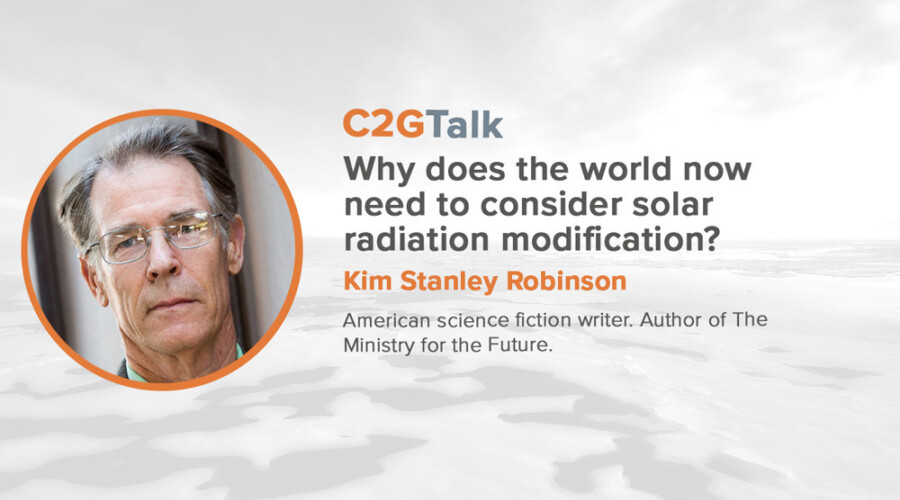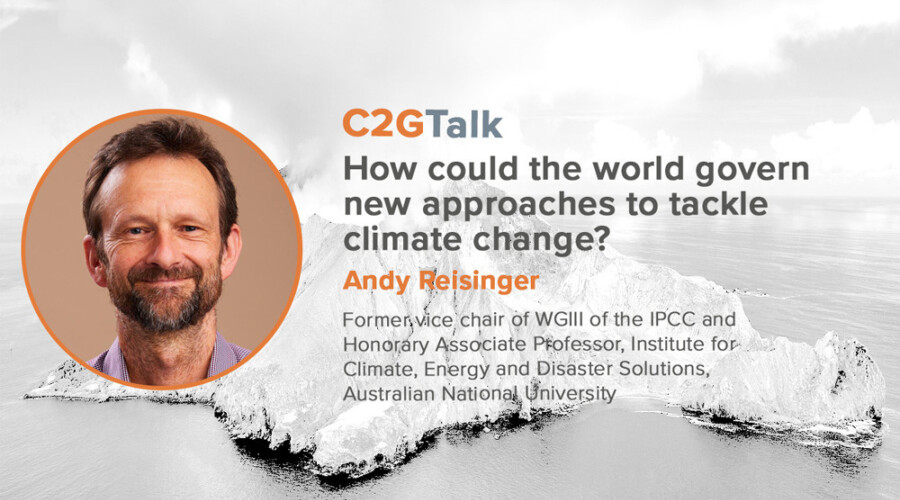En respuesta a los riesgos del cambio climático, los científicos están estudiando la viabilidad de desarrollar y desplegar el blanqueamiento de nubes marinas (MCB, por sus siglas en inglés), que pretende blanquear las nubes sobre el océano para reflejar la radiación solar de vuelta al espacio con el fin de conseguir refrigeración. En este podcast de "C2GDiscuss", dirigido por Paul Rouse, antiguo asesor científico de C2G, los paneslistas hablan de un experimento de MCB realizado en Australia, y de las implicaciones para la gobernanza de su posible despliegue.
También le puede interesar

8 ENE 2024 - Podcast
C2GTalk: ¿Por qué el mundo necesita ahora considerar la modificación de la radiación solar? con Kim Stanley Robinson
Muchas objeciones a la modificación de la radiación solar han sido superadas por los acontecimientos, dice el autor de "The Ministry of the Future", Kim Stanley Robinson, en este "C2GTalk".
Organizado por Janos Pasztor

4 DE DICIEMBRE DE 2023 - Podcast
C2GTalk: ¿Cómo debe gobernar el mundo los nuevos planteamientos para afrontar el cambio climático? con Andy Reisinger
El mundo superará los 1,5 °C de calentamiento, y los países se enfrentarán a consecuencias más extremas a corto plazo, advierte Andy Reisinger en un C2GTalk.
Organizado por Mark Turner

6 DE NOVIEMBRE DE 2023 - Podcast
C2GTalk: ¿Deberían los científicos del Sur Global participar en la investigación sobre la modificación de la radiación solar? con Inés Camilloni
Es importante que los científicos del Sur Global participen en la investigación y los debates en torno a la gestión del riesgo de desastres porque sus posibles repercusiones afectarían ...
Organizado por Mark Turner

